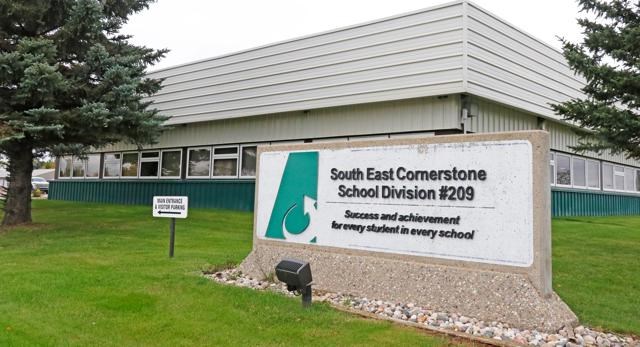WEYBURN – Staffing in the Â鶹´«Ã½AVeast Cornerstone School Division will be reduced by a total of 35.26 full-time equivalent positions, including cutting 23.8 FTE teachers, for the next school year due to insufficient funding from the provincial government.
The Cornerstone board of trustees passed their 2022-23 budget on Wednesday, and cited an operating deficit of $6.3 million as the primary reason for cutting staff.
The budget was presented by chief financial officer Shelley Toth, who noted the school division will have revenues of $106.7 million for next year, with expenditures of $113 million, and capital spending of $2.3 million and staffing totaling 1,054.52 FTEs.
Toth said the funding provided by the provincial government, which sets the rate of property taxes and the level of funding for each school division, are not enough to cover the salaries, benefits and rising inflation.
The positions to be cut will mostly be covered by attrition, said education director Lynn Little.
The cuts include 21.8 FTE classroom teachers, plus an early literacy consultant-coach and a curriculum consultant-coach for a total of 23.8 FTE of teaching staff.
Non-teaching positions to be cut include 0.2 FTE payroll; 2.5 FTE community education liaisons; 0.5 FTE educational psychologist; 1.25 FTE information technicians; 2.01 FTE library technicians; 1 FTE assistant caretaking supervisor; 3 FTE caretakers; and 1 FTE carpenter, for a total of 11.46 FTE positions.
On the plus side, a restricted grant will allow Cornerstone to add 7.0 FTE education assistants (EAs).
“I find it really disappointing the government is not funding education the way they should,” said Weyburn trustee Norma Hewitt-Lendrum.
Of the staff total, 515.46 FTE are teaching staff and 539.06 FTE are non-teaching staff. Superintendent Keith Keating pointed out that while the government covered the salary increase for the teachers, they did not cover the salary increases for the non-teaching staff, and for Cornerstone, that is more than half of the staff.
The cost of salaries and benefits comprise 72 per cent of the school division’s budget, or $80.8 million, with $24.6 million, or 22 per cent, going to buy goods and services; $7 million or six per cent covers the amortization of capital assets; and $600,000, or 0.5 per cent, goes to service the school division’s debt.
As a result of the staff reduction, the budget for operating expenditures will be decreased by $9076,262 or 1.2 per cent. Those expenses would have gone up by $2.3 million or 2.8 per cent had there been no staff reductions, noted Toth.
The school division’s unrestricted accumulated surplus will take a big hit to cover the deficit, said Toth, as the surplus will go from $22,225,912 as of Aug. 31, 2021, down to $14,355,771 as of Aug. 31, 2023.
Estevan trustee Jim Vermeersch pointed out that this accumulated fund is what helps Cornerstone to pay for capital projects that get no funding from the province. The surplus had been at $29,420,516 in 2014-15, then it rose to just over $30 million by 2016-17, but it has declined ever since.
Board vice-chair Carol Flynn noted that cost pressures are not decreasing, but are on the way up with the prediction the price of gas will soon $2 a litre and higher, “and everything that goes with that is going up as well.”
Expenses are forecast to hit $113 million, including $24,581,617 for goods and services, an increase of $1,933,986. Some of the rising expenses include insurance, going up by 36 per cent; fuel, going up by 13 per cent; and bus repairs and maintenance going up 20 per cent.
Breaking this last item down, the increases include windshields, up 48.6 per cent; shocks up 66.5 per cent; batteries up by 33.8 per cent; oil filters going up 15.7 per cent; air filters up by 16.2 per cent; and tires up by 48.4 per cent.
The capital expenditures for this year include $1 million in computer hardware and equipment, which will include equipment for eight schools to be refreshed, with network equipment upgrades; $1 million in new school buses; $100,000 to replace two fleet trucks; and $187,000 for furniture and equipment across the school division.
“The school-community councils and schools have all received the list for staffing for their schools,” said Little. “We are thankful to the SCCs for their understanding and support as we move forward.”





